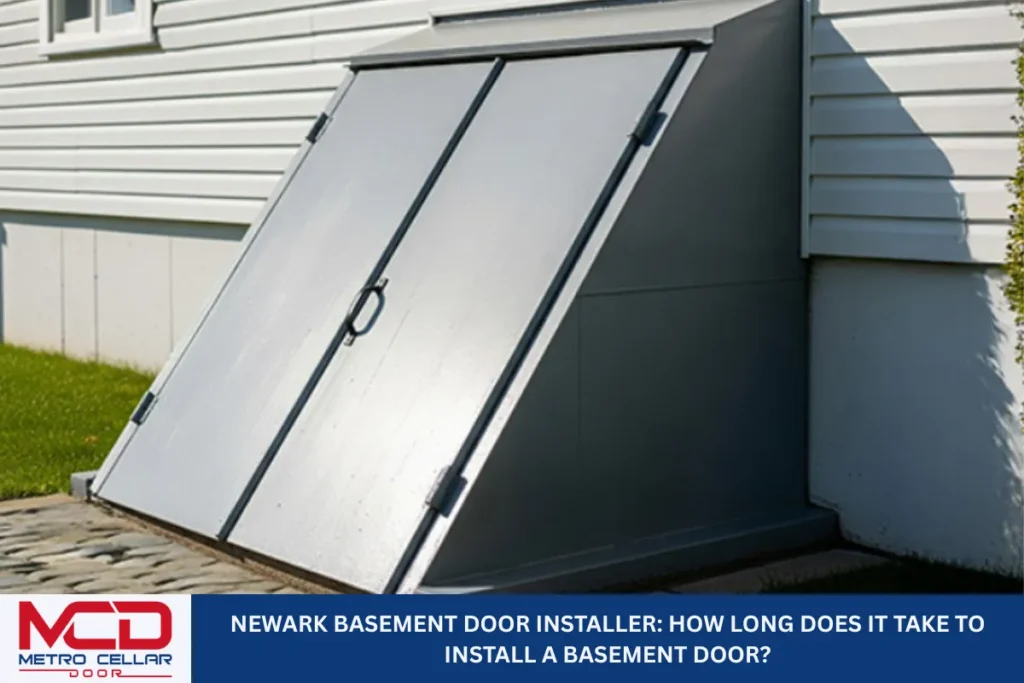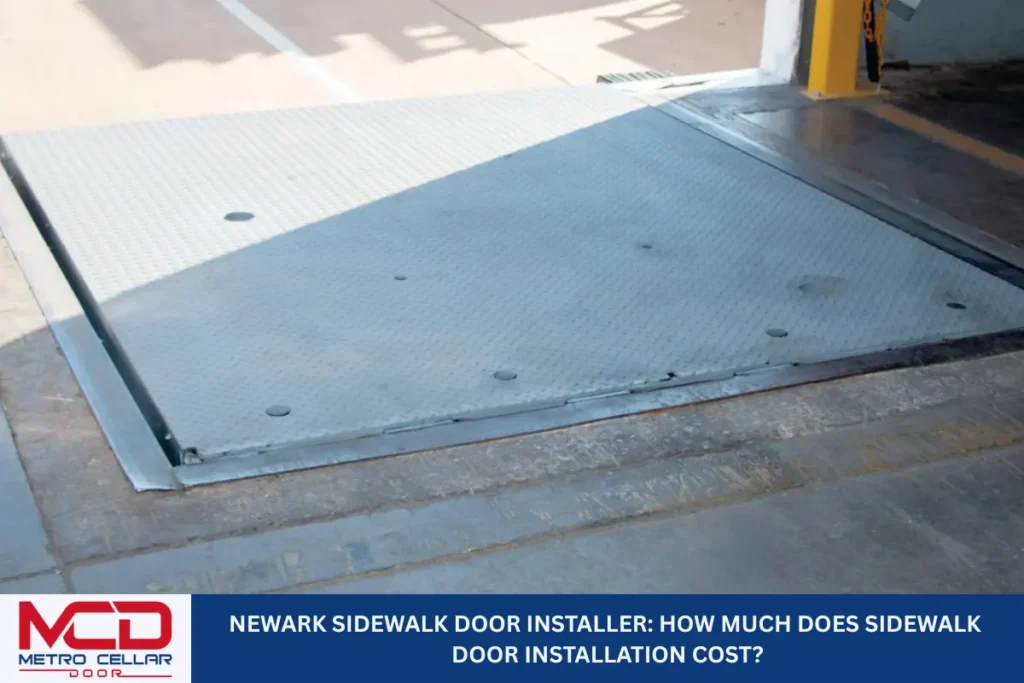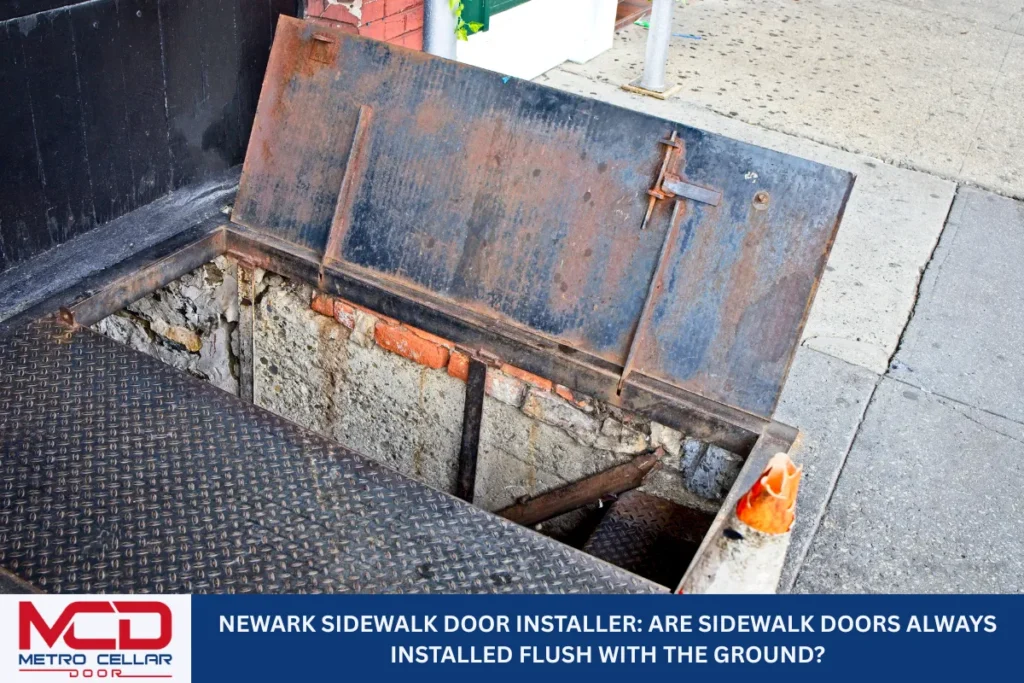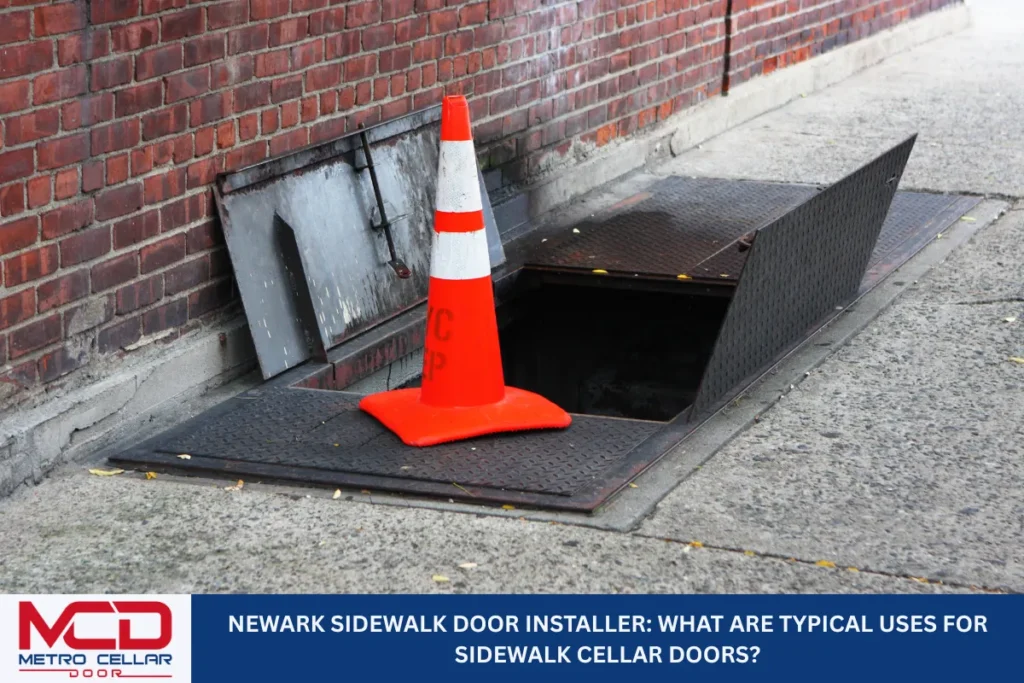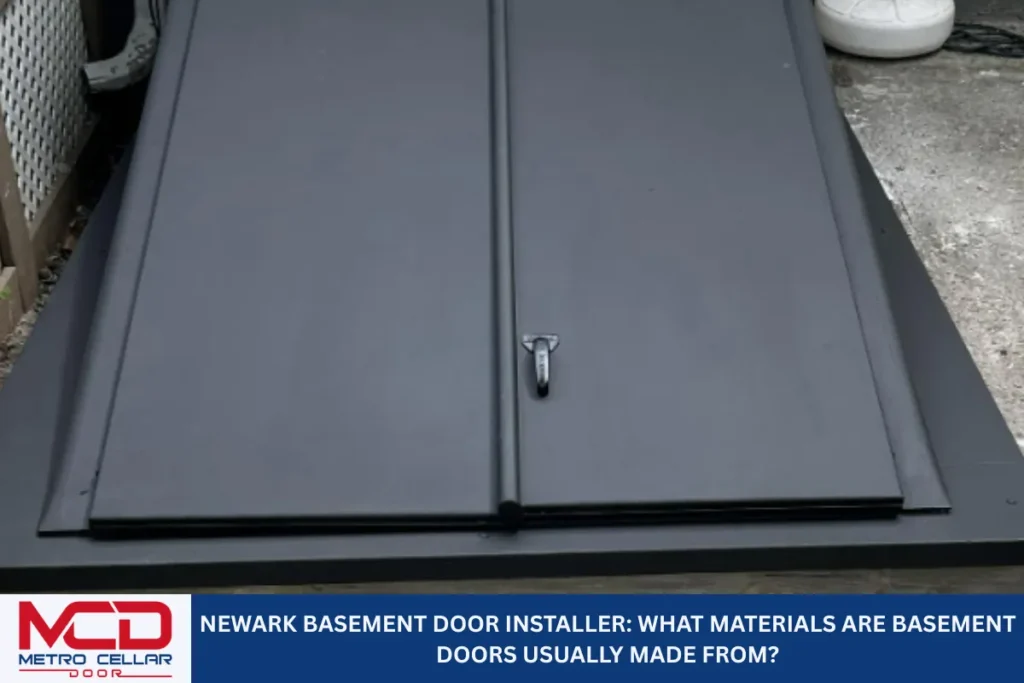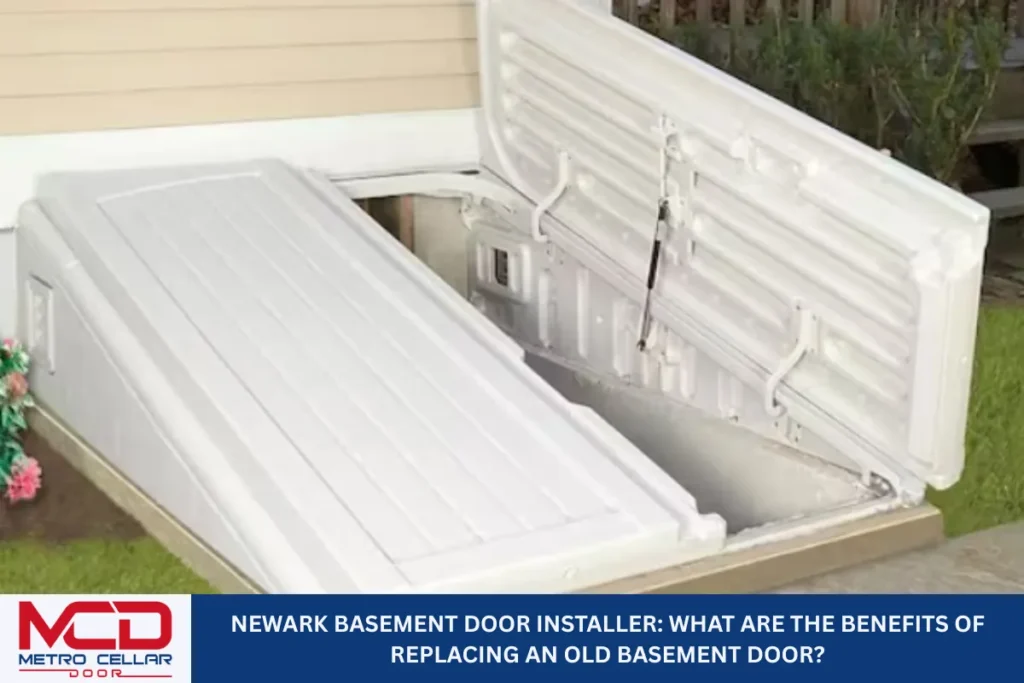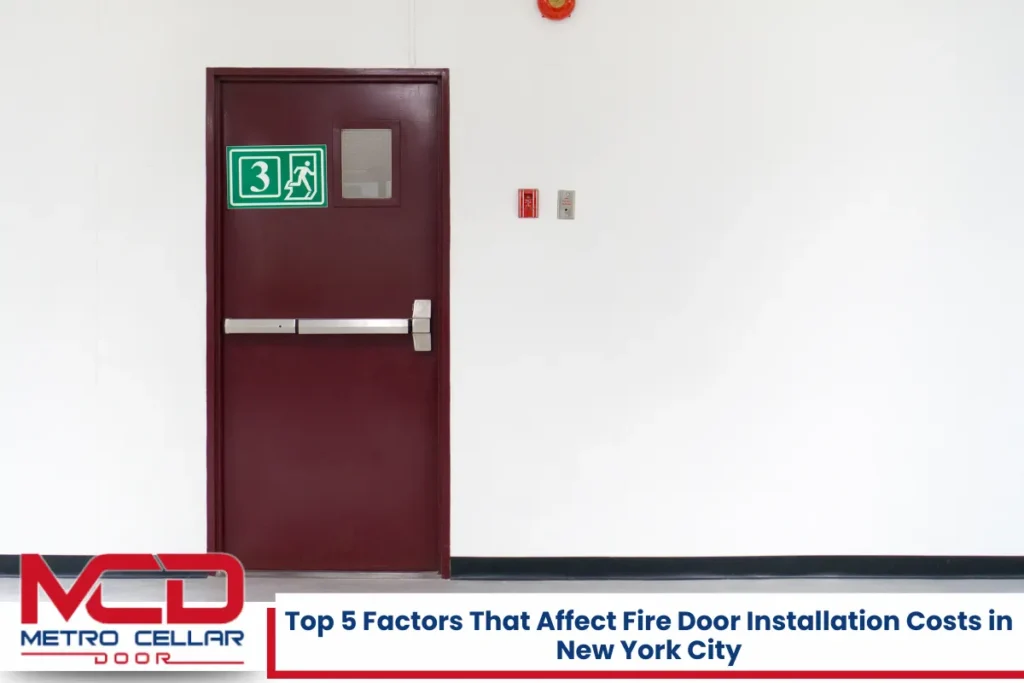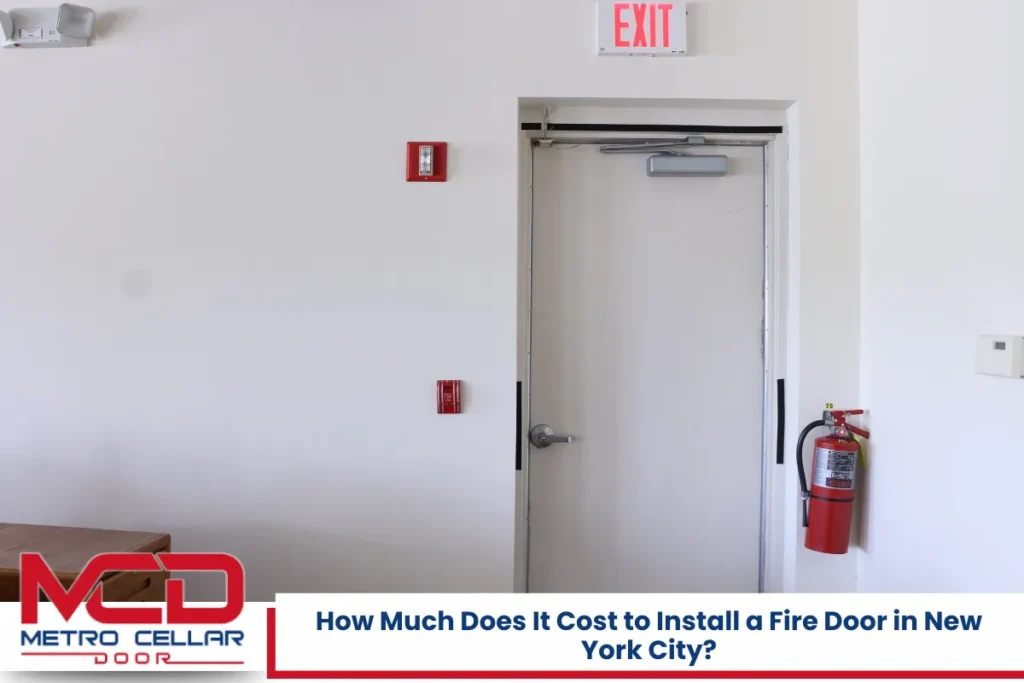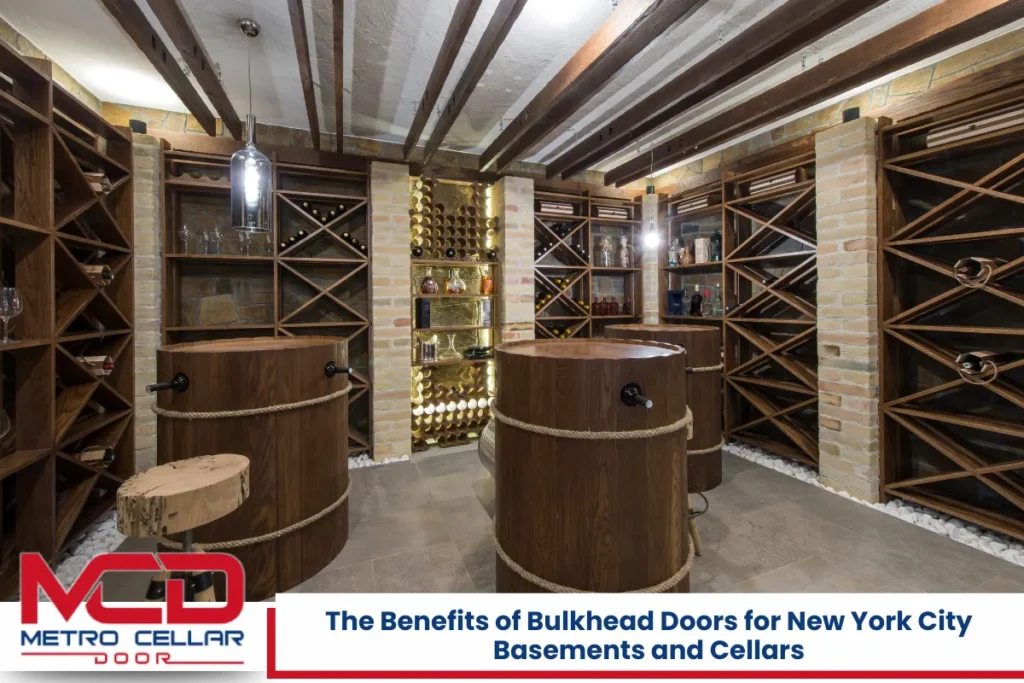Understanding the Role of a Basement Door in a Newark Property
The installation process, handled by a professional basement door installer, plays a central role in ensuring the safety and accessibility of any basement-level space. In Newark, where both historic brownstones and modern homes are tightly packed and often include basement access points, a properly installed exterior basement door isn’t just an added feature—it’s an essential part of the home’s structure.
A basement door is typically installed at the exterior foundation wall of a building. It serves as a secondary point of access to the basement. Most doors are made of metal or heavy-duty steel, designed to be weather-resistant and secure against forced entry. The most recognizable style is the angled cellar door—often referred to as a Bilco door—which rests at a slant and opens outward. This style is especially common in the dense residential blocks across Newark, where space constraints require smart, functional access solutions.
Types of Basement Doors Found in Newark Homes

Traditional Steel Cellar Doors
These doors are constructed from galvanized steel and are known for their long-lasting durability. Their angled design allows water to run off easily, helping prevent leaks into the basement below. In many Newark homes, this type is considered the standard for exterior basement entry.
Flat Hatch Basement Doors
Flat hatch doors are flush with the ground or the concrete pad on which they sit. These doors are more discreet and sometimes preferred for aesthetic reasons, especially in backyards or garden-facing basement entrances. However, due to their horizontal position, they require proper sealing and drainage planning to prevent water buildup.
Custom Fabricated Doors
Some Newark properties feature unusual foundation layouts or size constraints. In these cases, custom-fabricated basement doors made from steel or aluminum are necessary. These doors are built to precise specifications, taking into account the unique structural and environmental conditions of the home.
Reasons Homeowners in Newark Install New Basement Doors
Installing or replacing a basement door is usually done out of necessity. Still, the benefits extend beyond simply fixing a problem. For many homes in Newark, this upgrade brings:
- Better Protection from the Elements: A new door helps seal the basement against rain, snow, and cold wind.
- Enhanced Home Security: Many older doors are rusted, loose, or don’t lock properly. Replacing them strengthens home security.
- Improved Access: Whether you’re moving large equipment into the basement or want a safer emergency exit, a well-installed door makes movement easier.
- Property Value Increase: A new door is both functional and aesthetically pleasing, which can significantly enhance a home’s curb appeal and potentially increase its value when it comes time to sell.
Each of these benefits is particularly valuable in Newark, where seasons vary drastically and older homes often need structural updates.
Full Breakdown: How Long Does It Really Take to Install a Basement Door?
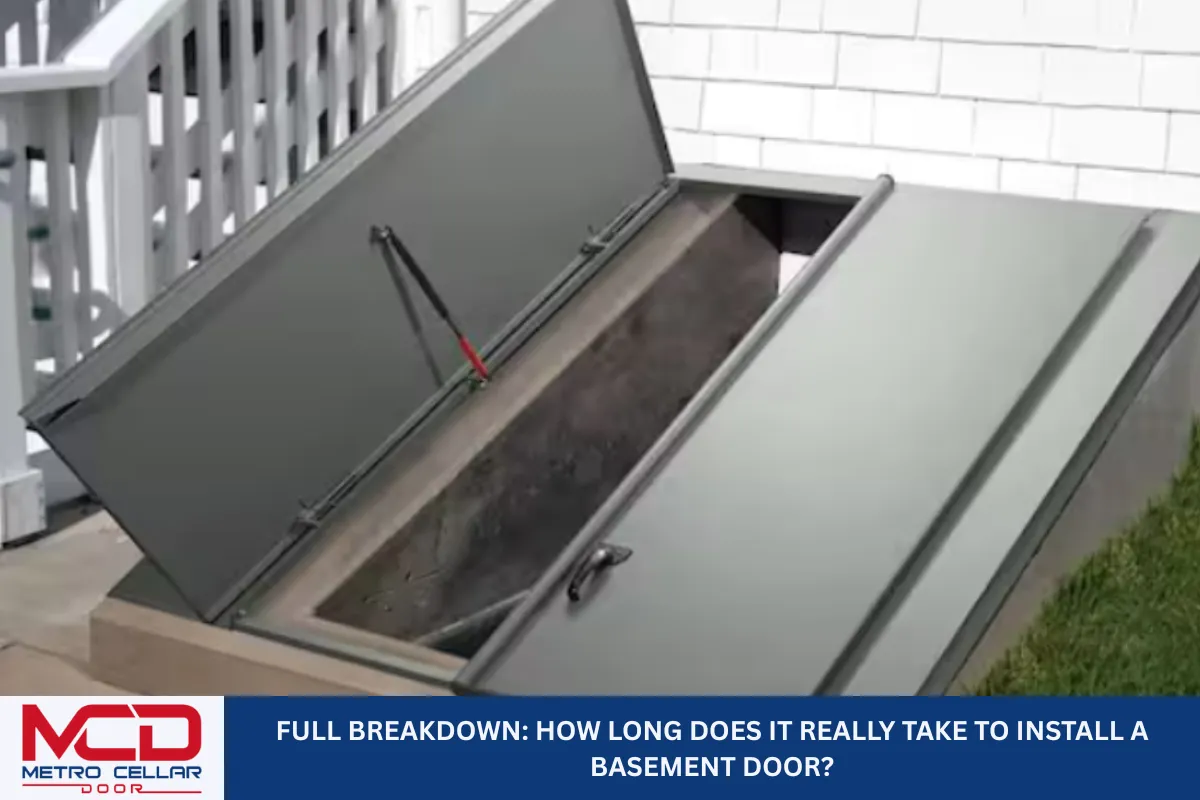
Installing a basement door in Newark can take anywhere between 4 to 10 hours, but understanding what happens during this timeframe helps make sense of the estimate. Each phase of the installation involves several steps, which depend on factors such as weather, the condition of your foundation, and the type of door being installed.
Preparation Stage: Evaluating the Site and Planning
This stage starts with measuring the opening where the new door will be installed. Newark homes vary widely in construction, so no two basement openings are identical. Accurate measurements are taken to determine the dimensions of the door and frame.
The installer also examines:
- The condition of the surrounding concrete or brick
- Drainage slopes to prevent water from pooling
- How level the existing surface is
At this point, choices are made regarding the door type and any additional modifications needed, such as replacing a bulkhead or leveling the surface.
Removal of the Old Door (If Present)
Removing an old basement door can take anywhere from 1 to 2 hours, especially in homes where the original installation was done decades ago. In older Newark properties, doors may be secured with rusted bolts or cemented frames that require more time and specialized tools for safe removal.
During this stage, the area is cleared of debris, damaged materials, or anything that could interfere with the new door’s fit and seal.
Foundation Repairs and Surface Adjustments
Once the old door is out, the installer must prepare the area. This often involves:
- Patching cracks in the foundation
- Replacing broken bricks or cement
- Applying sealant or weatherproofing compounds
These steps are crucial in Newark, where seasonal freeze-and-thaw cycles can cause structural shifting. If these issues are not addressed during installation, they can lead to future leaks or drafts.
Depending on the extent of the work, this part can take anywhere from 1 to 3 hours, especially if curing time is required for the concrete or sealant.
Installing the New Basement Door
After preparation is complete, the new door is installed. The frame is positioned first, and the door is then anchored to the concrete or masonry using heavy-duty bolts. A good installer ensures that the door is level, opens and closes smoothly, and creates a watertight seal.
This installation process usually takes 2 to 4 hours, but may vary depending on:
- The complexity of the door type
- Whether it’s pre-fabricated or custom
- The weight and size of the door
- Weather conditions on installation day
Once mounted, any gaps are filled with expanding foam or sealants, and flashing is installed around the seams to prevent water infiltration.
Final Sealing and Testing
To finish the installation, all joints are sealed, and the entire unit is tested for proper operation. The door is opened and closed several times, locks are checked, and sealants are inspected. This final stage may only take 30 to 45 minutes, but it’s critical for long-term performance.
What Affects Installation Time in Newark?
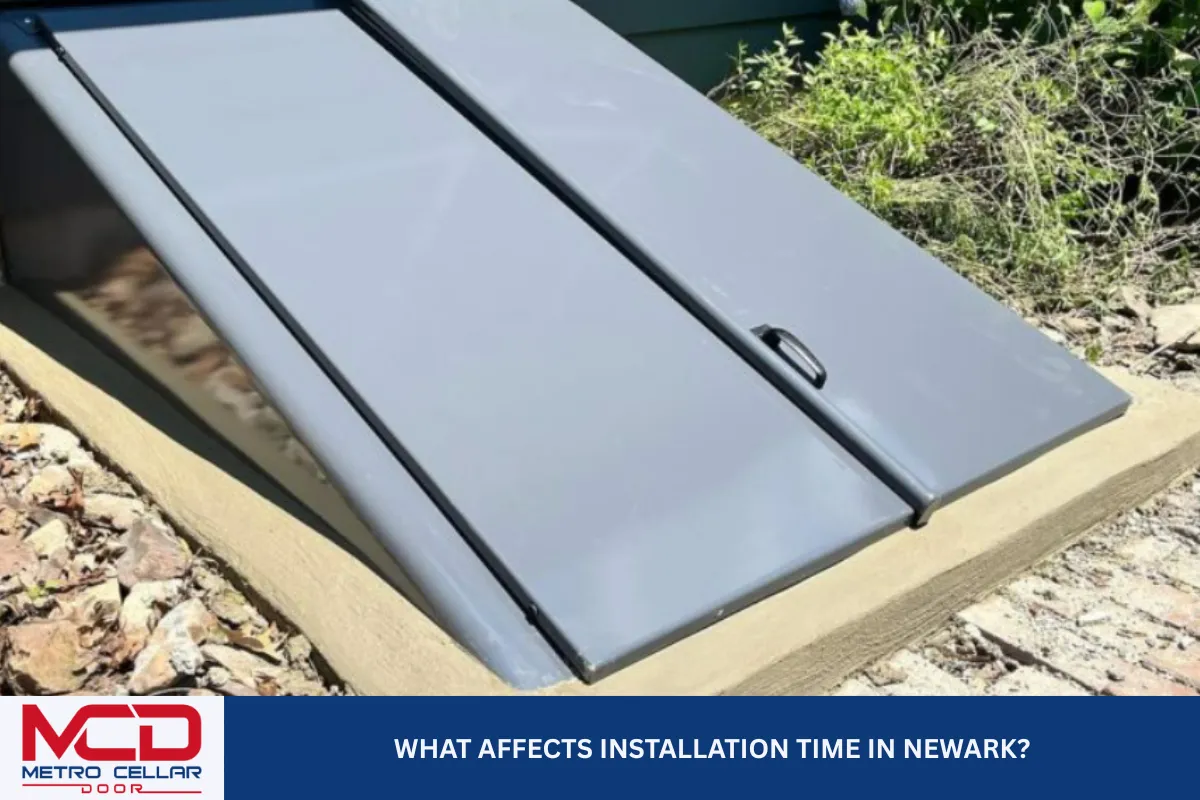
The average installation timeline may shift due to specific circumstances common in Newark:
Seasonal Weather
Installers often have to plan around Newark’s unpredictable weather. Rain or snow can delay work or prevent the use of certain materials that require dry conditions to cure.
Access Restrictions
Tight alleys or shared driveways, common in Newark neighborhoods, may slow down material delivery or equipment setup.
Structural Surprises
Sometimes, removing an old door reveals foundation problems or previous poor workmanship, which can add time to the job. These issues must be resolved before proceeding with the new installation.
Choosing the Right Time of Year for Installation
Timing your basement door project can make a big difference. Here’s how each season affects the work in Newark:
- Spring: Ideal conditions with mild temperatures and low rainfall.
- Summer: Warm and dry, but can be physically demanding during heatwaves.
- Fall: Still workable, though early planning is needed to avoid cold snaps.
- Winter: Rarely recommended unless mild; freezing temps affect curing and may cause delays.
How to Get Ready Before Installation Day
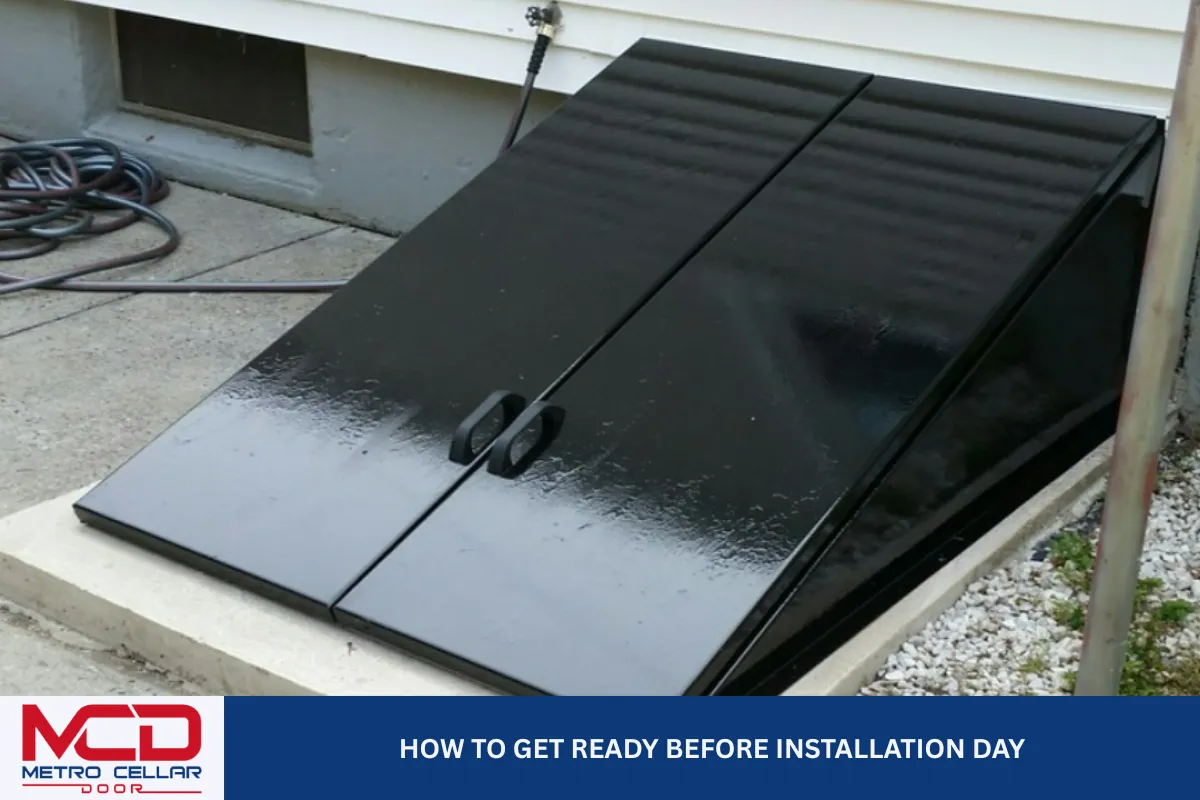
A smooth installation starts with good preparation. Newark homeowners can help by:
- Clearing access paths to the basement area
- Moving storage items away from the installation zone
- Communicating clearly with the installer about layout or timing concerns
These small steps ensure no time is wasted and the team can focus entirely on the work at hand.
Maintaining Your Basement Door After Installation
Even the best door needs regular upkeep to stay effective. To protect your investment:
- Inspect Seals: Look for cracks or worn areas around the edges every six months.
- Clean Debris: Remove leaves, dirt, or snow buildup to avoid corrosion.
- Lubricate Hinges: Apply oil or grease annually for smooth operation.
- Repaint as Needed: Keep metal doors painted to resist rust, especially in humid months.
By maintaining your new door properly, you ensure it continues to perform well for years to come, regardless of the seasonal challenges in Newark.
Final Thoughts: Is It Worth the Time and Investment?
Getting a new basement door installed by a skilled installer is more than a quick fix—it’s a long-term upgrade. From security and weather protection to aesthetics and resale value, the benefits of a proper installation far outweigh the time it takes to complete.
In Newark, where architectural styles and the age of homes vary significantly, having a door tailored to your property ensures functionality and reliability in all seasons.
Newark Basement Door Installer – Metro Cellar Door Bilco Pro
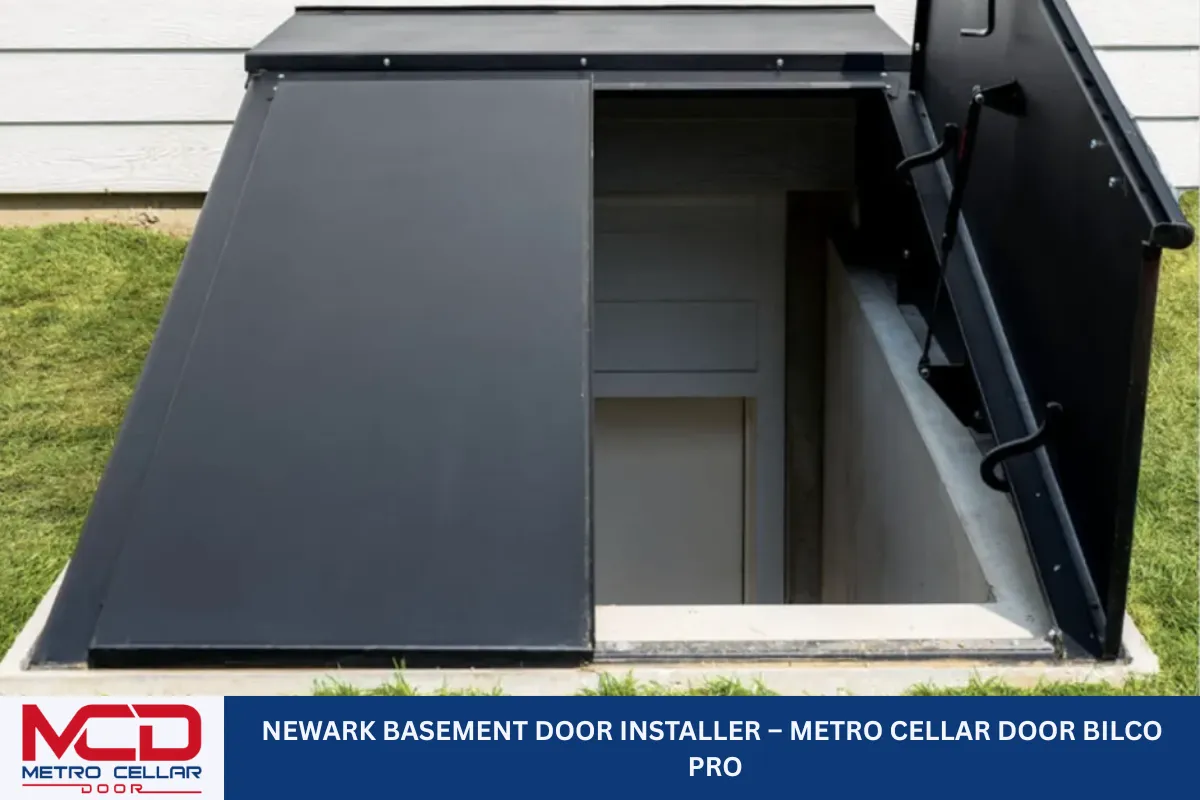
Metro Cellar Door Bilco Pro provides expert basement door installation services throughout Newark. As an experienced basement door installer, our team specializes in replacing worn-out cellar doors with secure, weather-resistant, and long-lasting solutions for both homes and commercial buildings.
We handle everything from fire-rated doors to custom-fitted sidewalk cellar doors with precision and care. Our services include free estimates, and we offer custom fabrication to suit projects of any size. Contact us at (929) 979-7313 to learn more or schedule your next installation with Newark’s trusted experts!
Frequently Asked Questions About Basement Door Installation in Newark
What is the average installation time for a basement door in Newark homes?
The installation time for a basement door varies based on the project’s complexity, the condition of the basement wall, and the type of door chosen. On average, it takes between 6 to 10 hours to complete, including the removal of the old door and preparation of the area. If you’re installing custom doors or combining this with a basement remodel, such as adding an egress window or drainage system, it may take longer. Factors such as building codes in Newark, poor weather, or special installation options (like adding handrails or screen doors) can also impact the timing. It’s essential to note that the total duration encompasses the entire process, from purchase to the completion of installation. A professional installer will typically conduct a final measure during the design phase to ensure accuracy and speed up the process. Always refer to an updated installation cost guide to understand your project scope in advance.
Do I need a building permit for installing a basement door in Newark?
Yes, most exterior door installations in Newark, particularly basement entry doors, require a building permit. This includes situations where structural changes are made, such as modifying the basement wall, expanding an opening, or installing steel doors for safety or compliance with fire emergency regulations. Permit applications must be submitted to Newark’s local building department, and the process may include review of your window installation plan if egress requirements apply. During the design phase, professional installers often assist with documentation to ensure the project meets local building codes. Skipping this step can result in fines or the reinstallation of certain components. If your project involves more than just a door—such as converting the basement into a walkout entry or installing a drainage system—it’s even more crucial to obtain the proper permits. Some permits can be obtained within days, but more complex applications may take several weeks to be approved.
What types of materials are best for basement doors?
Basement doors are exposed to the elements and require materials that provide both durability and security. Steel doors are one of the most common doors used for basement entry in Newark because they resist corrosion, provide excellent insulation, and offer fire emergency protection. Galvanized or powder-coated finishes increase the lifespan and resist rust in damp environments. For homeowners interested in a variety of design styles, custom doors can be fabricated using a combination of materials, such as aluminum and steel, to match the exterior aesthetics. Some newer Bilco doors also feature easy one-hand operation and sealed edges to prevent water intrusion. Wood is rarely used for basement door applications due to its susceptibility to rot and pests. Ensure your material choice aligns with your installation experience, local climate conditions, and long-term maintenance expectations. A professional installer can recommend types of materials that complement your home and fit within your budget.
Can I install a basement walkout entry during a replacement of the basement door?
Yes, converting your existing door to a basement walkout entry is possible during a replacement project, though it’s more complex. This type of installation involves significant modifications to the basement wall and surrounding landscape, often requiring excavation, a proper drainage system, and handrails for safety. It’s ideal to complete this during a full basement remodel, especially if you’re also planning to install windows or exterior doors. Walkout entries offer several benefits, including improved accessibility, natural light, and the potential to increase usable living space or enhance resale value. However, this installation project will take longer and may require updated building permits and detailed permit applications. Design style is also important here, as you’ll want the walkout to match the home’s exterior. Professional installers will typically create a comprehensive window installation plan and provide a final measurement before commencing the job to ensure compliance with Newark’s building codes and to prevent drainage issues.
How much does a basement door installation cost in Newark?
The cost of basement door installation in Newark can vary widely depending on several factors. For a standard Bilco door installation, expect to pay between $1,500 and $3,000. This includes labor, materials, and minor site preparation. Custom door installations, especially those that involve changes to the basement wall or foundation, will cost more—sometimes exceeding $5,000. If your installation project includes additional upgrades, such as a drainage system, handrailings, or a combination of screen door installation, expect higher costs. Always consult an installation cost guide that reflects current pricing for the Newark area, as costs may change based on demand and material availability. A licensed basement door installer will also provide quotes that include permit fees and building code requirements. To ensure accuracy, the installer will perform a final measure before the project begins. Remember that investing in high-quality materials, such as steel doors, can reduce long-term repair costs and enhance property value.
Read more: Newark Basement Door Installer: What Materials Are Basement Doors Usually Made From?

